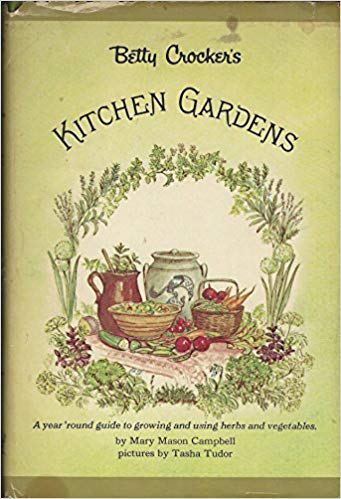{bits & pieces}
The weekly “little of this, little of that” feature here at Like Mother, Like Daughter!
(This will all look and work better if you click on the actual post and do not remain on the main page.)
At the bottom of this blog I put a quote that I find positively brilliant, not least because it appears in a humble gardening book published quite a while ago:
“A wise lady once said, ‘If you haven’t good judgment you’ll never make a good cook or anything else.'”
– Mary Mason Campbell, Kitchen Gardens

What does this mean? How can we get this good judgement she speaks of? Isn’t that something you have or don’t have? Doesn’t it seem unfair to say that if you don’t have this mysterious quality, you’ll never be good at cooking or anything else?
Seems harsh, maybe?
When I started giving my talk about the Four Cardinal Virtues*, I mentioned that it was decisive for my spiritual life to read Joseph Pieper’s book by that name (which is based on the thought of St. Thomas Aquinas and, of course, Aristotle).
I had never thought of virtue at all. To me, you just were the way you were. When I became a Christian, I guess I had a vague idea that God would make you better… I didn’t realize that goodness was something from Him, but also something that we can strive to acquire, and that knowing some things about how virtue operates, and what it is, can help us on that path.
Yes, we have a grace of virtue granted in baptism through which we have Christ’s life (and thus, goodness or virtue) infused in us. But we also can acquire virtue as we grow and learn. In Pieper’s words, St. Thomas speaks of “the pre-eminence of that “fuller” Prudence (which is what “good judgement” basically is) in which the natural and the supernatural, the acquired and the given, are combined in a felicitous, in a literally ‘graced’ unity.”
Good judgement, or the virtue of Prudence, comes from experience and memory. We have to do things, or try to do them, make mistakes, remember how things came about, and try again. Prudence can’t be developed without reflecting on our actions after we do them and our experiences after we experience them.
Pieper: “Trueness-to-being of memory, open-mindedness, clear-sighted objectivity in unexpected circumstances: these are qualities of mind of the prudent man. All three are focused upon what is ‘already’ real, upon things past and present… ”
Paradoxically, then, we won’t have good judgement until we make up our minds to try to “be good at” cooking or “everything else” — that is, the task at hand. People always quote G. K. Chesterton’s line that “anything worth doing is worth doing badly” — they may not understand that he was hinting at this development of good judgement, at Prudence, the Queen of Virtues, without which we cannot actually be good. Obviously. At least it’s obvious when we are looking at our children as they stumble about or stammer their words or try to draw their pictures — we see that they have to begin by doing things badly!
I’m convinced that one reason we aren’t “good cooks” or “anything else” in the realm of keeping the home — why we don’t like housework and why we make excuses about not being “good at it” or compare ourselves with another woman and conclude that to her, these things “just come naturally” but don’t happen to “give us joy” so maybe we should go on to something else — is that we simply aren’t willing to learn to do them, even though they really are things we have to do.
We are not good at them, and that makes us sort of despise them, or at least dismiss them.
When I started my married life — you will laugh at me — I literally didn’t know how to sweep a floor. I was much, much worse off than you are! Fortunately, I didn’t get the idea that it didn’t matter; instead (because books like Kitchen Gardens and others came my way, and because of many factors I’m sure I know nothing about), I intuited that trying to learn even simple things and become good at them, even if they frustrated me greatly and seemed both beyond my ability and beneath my notice, would be fruitful for my life with these others who are given to me. Somehow, I did start to see that it was going to be worthwhile to grapple with the work around me.
Yesterday Deirdre and I were musing on the reality that no one would reasonably assume that a woman would take an outside job and not be given a manual, a mentor, and/or some instructions — and that she would need time to master her task. Yet in the realm of home making, our assumption seems to be not only that we won’t try to be good at the aspects of the job, but that just as perhaps in spite of ourselves we are figuring things out (say, when our children get to school age), everyone will expect us to quit and move on to something more fulfilling.
How frustrating! Imagine it!
Are these just years to be muddled through, or is there a real reward in the field, awaiting us?
I maintain the latter! I have a vision of home, a refuge and a radiating light, that yet is comprised of many small doings, some perhaps a bit of a slog (but what job doesn’t have aspects of drudgery?), some amazingly creative, all simply needing to be mastered at some level.
From cleaning your cast iron to reading with your children to having dinner together when they begin to leave the nest, I’m here at Like Mother, Like Daughter to share at least the few things I’ve learned along the way.
*I’ll be giving a talk on this subject in Denver, CO, at the Rocky Mountain Home Educators Conference on July 21. I will post information on my Speaking page! Hope to see you there!
On to our links!
I have enjoyed this Instagram account: Grown to Cook. Vera’s garden is in Holland, so perhaps her climate is a bit different from mine, but I’ve learned a lot from her videos and photos.
If you homeschool, you might want to take a peek at this post from Celeste, rounding up her year with her twin sixth-graders. I feel a little conflicted linking to it — it probably represents the most you could do with your children, and as such might feel a little daunting, by which I mean utterly impossible. I certainly never reached this pinnacle of education with my children! But I do share because her visuals might help you (click on the pictures to see a larger size); sometimes we just need to see things to get the idea of what to do (or what the kids can do). Sometimes the children need to see what other children are doing! And I love that she uses the Ambleside curriculum. I always say the whole thing can’t be done; she proves me wrong, I guess! Don’t be overwhelmed — just take whatever seems helpful to you and run with it! (Reality Check: Note that she says they do Latin twice a week for 10-15 minutes — surely that is not too overwhelming?)
In the Department of Staying at Home, Economics Division:
I certainly don’t agree with the conclusions of this article: The Two-Income Trap, but the analysis is correct. It’s crazy to base your life together in a family on two incomes. It’s stressful and imprudent and costs too much. The solution obviously is not to have the government make everything free, because nothing is free, taxes just mean everyone has to earn more, and costs are more than monetary (but that’s a discussion for another time). Just try reading it with a different filter. It’s absurd to declare that “the notion that mothers are all going to run pell-mell back to the hearth and turn back the clock to 1950 is absurd.” Why absurd? Mothers, if they are married, certainly can stay home and will, if given half the chance — and if they can feel competent when they do (cue intro music for Like Mother, Like Daughter!) (what IS our intro music??).
This WSJ article: Working Women Often Underestimate Motherhood Costs (sorry, for subscribers only) makes a similar point: It just costs too much in time and money to work and take care of children for all but the very rich (speaking purely economically here — I think the rich are losing as well in other ways, as the stress does not go away no matter how many nannies you have). This goes back to my “it’s crazy” remark: no one rational bases their life plan on everything going smoothly! But every day I hear of people’s lives thrown into chaos when a pregnancy doesn’t go as planned, a child gets sick, or a hospitalization occurs. Right, that’s how life is! You can count on everyone having the flu. If getting sick means a stressful war of all against all as husband and wife battle out whose commitments reign supreme, life will fail to be peaceful on a very basic level.
Some misc:
Figuring out the Liturgical Calendar.
I had a hard time settling on a Fr. Schall essay for you; there were many worthy ones. I did like this one: On Ideology
I’m not sure why or how people think they can dry up Niagara Falls,, but then they go and do it…
Not many people getting married at all these days, but it’s good to know what divorce actually is and if and when the Catholic Church tolerates it.
Get ready: a big Mutu sale is coming up — Deirdre will post about that shortly.
Today is the feast of the Roman Martyrs.
From the archives:
There’s still time to have an Independence Day party! And build the culture.
Reading aloud: A tutorial.
We’d like to be clear that, when we direct you to a site via one of our links, we’re not necessarily endorsing the whole site, but rather just referring you to the individual post in question (unless we state otherwise).
Follow us:
Follow us on Twitter.
Like us on Facebook.
Auntie Leila’s Pinterest.
Rosie’s Pinterest.
Sukie’s Pinterest.
Deirdre’s Pinterest.
Habou’s Pinterest.
Bridget’s Pinterest.
Auntie Leila’s Ravelry.
Auntie Leila’s Instagram.
Rosie’s Instagram.
Sukie’s Instagram.
Deirdre’s Instagram.
Bridget’s Instagram.
Habou’s Instagram.
The post {bits & pieces} appeared first on Like Mother Like Daughter.




